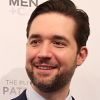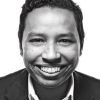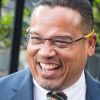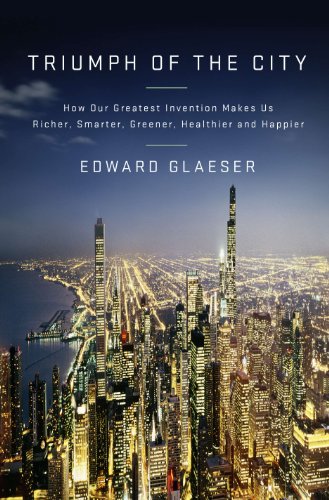20 Urban Sociology Books That Uncover City Life
Curated by Bill Gates, Alexis Ohanian, and Mark Zuckerberg — essential Urban Sociology Books for deep urban insights





What if the cities we live in are more than just buildings and streets? Urban Sociology peels back the layers of city life to reveal complex social patterns, inequalities, and power structures shaping your everyday environment. This field feels especially urgent today as urban populations soar and social divides deepen.
Leading voices like Bill Gates, the philanthropist deeply engaged in urban poverty issues, and Alexis Ohanian, co-founder of Reddit and advocate for thoughtful city planning, have highlighted transformative books that reveal the hidden forces shaping our urban world. Their insights come from personal journeys—Gates reflecting on poverty through Evicted, and Ohanian embracing practical urban economics in Order without Design.
While these expert-curated books provide proven frameworks to understand urban dynamics, readers seeking content tailored to their specific interests—be it housing insecurity, urban planning, or social movements—might consider creating a personalized Urban Sociology book that builds on these insights and fits your unique learning goals.
Recommended by Lydia Polgreen
Editor in Chief of HuffPost
“I am lucky enough to be reading a galley of Andrea Elliott's remarkable new book. Read this remarkable piece to get a sense of its power and resonance.” (from X)
by Andrea Elliott··You?
by Andrea Elliott··You?
When Andrea Elliott noticed the widening gap between New York City's homeless crises and its wealth, she set out to tell the story through the eyes of Dasani, a resilient girl navigating poverty and systemic challenges. You gain intimate insights into the lived experience of urban poverty, structural racism, and family dynamics under pressure, illustrated through detailed narrative chapters tracing Dasani’s growth and struggles. This book benefits anyone seeking a humanized, deeply reported perspective on urban inequality, social policy failures, and the complex realities behind homelessness. Elliott’s meticulous reporting and storytelling invite you to understand the stakes beyond statistics, especially in chapters exploring the intersections of history, family, and survival.
Recommended by Keith Ellison
Minnesota Attorney General, social justice advocate
“Just listened to the audio version of one of my favorite books, The Color of Law: A Forgotten History of How Our Government Segregated America by Richard Rothstein. Highly recommend.” (from X)
by Richard Rothstein··You?
by Richard Rothstein··You?
After analyzing decades of government policies and urban planning, Richard Rothstein exposes how legal mandates, not just private choices, created racial segregation in American cities. You’ll learn how zoning laws, federally backed housing subsidies, and law enforcement practices systematically enforced racial divides, shaping metropolitan areas from the 1920s onward. For anyone seeking to understand the roots of contemporary urban racial disparities, this book offers detailed chapters on public housing segregation and suburban exclusion that clarify complex legal and social mechanisms. This is essential reading if you want to grasp how government actions have shaped urban landscapes and racial inequality.
by TailoredRead AI·
This tailored AI book explores the multifaceted world of urban sociology, blending theory and practice to illuminate the social dynamics that shape city life. It examines how urban environments influence social interactions, community structures, and inequalities, providing a personalized pathway that matches your background and goals. By focusing on your interests, this book reveals the complex interplay of factors like migration, segregation, social movements, and urban policy. Engaging with tailored content, you gain a deeper understanding of urban social patterns and their implications, making the study of cities both accessible and relevant to your unique perspective.
Recommended by Bill Gates
Co-Founder & Former CEO of Microsoft, Philanthropist
“This book gave me a better sense of what it is like to be very poor in this country than anything else I have read. It is beautifully written, thought-provoking, and unforgettable.”
by Matthew Desmond··You?
by Matthew Desmond··You?
Matthew Desmond challenges the conventional wisdom that poverty is merely about income by exposing the brutal reality of eviction and housing instability in American cities. As a Princeton sociologist, he follows eight families in Milwaukee, revealing how housing insecurity traps people in a cycle of poverty. You gain deep insights into the economic and social mechanisms that profit from displacement, with vivid accounts that bring the statistics to life. This book is essential if you want to understand the complex interplay of poverty, housing law, and urban life through detailed case studies and systemic analysis.
Recommended by Alexis Ohanian
Co-Founder of Reddit and Initialized Capital
by Alain Bertaud··You?
by Alain Bertaud··You?
Alain Bertaud draws from five decades of urban planning across forty cities to challenge the qualitative vagueness that often clouds city design. You’ll uncover how integrating urban economics with planning decisions—like street widths or building heights—can measurably enhance city productivity and livability. The book dives deep into labor market sizes, infrastructure design, and land use regulations, providing a grounded framework rather than abstract ideals. Whether you’re a planner, economist, or policy maker, Bertaud’s insights offer a practical lens to rethink how cities evolve and function.
Recommended by William Whyte
Author of City: Rediscovering the Center
“One of the most remarkable books ever written about the city . . . a primary work. The research apparatus is not pretentious—it is the eye and the heart—but it has given us a magnificent study of what gives life and spirit to the city.”
When Jane Jacobs challenged the prevailing urban planning orthodoxies of the early 1960s, she drew from her experiences as a writer and activist deeply embedded in New York City's neighborhoods. This book unpacks what makes city life vibrant and sustainable, focusing on street-level diversity, human-scale design, and organic urban ecosystems. You’ll gain insights into how factors like mixed uses, dense populations, and active streets foster social cohesion and economic vitality, illustrated through detailed observations and critiques of conventional planning methods. If you’re interested in understanding what truly shapes thriving cities beyond theory, this book offers a grounded perspective that remains relevant to planners, sociologists, and engaged citizens alike.
by TailoredRead AI·
This personalized book explores rapid transformation strategies tailored to urban environments and communities, focusing on actionable steps to improve city life within one month. It covers foundational concepts of urban change, community engagement, and policy impact, while examining practical urban interventions that match your interests and background. The book delves into how social dynamics, infrastructure, and governance interact to shape urban renewal processes. By concentrating on your specific goals and desired sub-topics, it reveals a customized pathway for meaningful city improvements, making complex expert knowledge accessible and relevant. This tailored approach ensures you gain focused insights and a clear roadmap to implement change swiftly and effectively.
Recommended by Mark Zuckerberg
Co-Founder & CEO of Facebook
by Sudhir Venkatesh··You?
by Sudhir Venkatesh··You?
Sudhir Venkatesh's years of immersive fieldwork in Chicago's public housing projects led to this revealing account of urban gang dynamics. You gain firsthand insight into the complex social and economic networks behind the crack trade, exploring not just crime but community relationships, power structures, and survival strategies. Chapters detail how gangs function like organizations, balancing violence with social service roles, challenging many stereotypes. This book suits those interested in sociology, criminology, or urban policy, especially if you want to understand systemic urban poverty beyond headlines.
Recommended by Joe Feagin
Distinguished Professor, Texas A&M University
“Offering a critical sociospatial approach and global contextualization, The New Urban Sociology provides the best overall understanding of the development, spatial forms, and character of multicentered metropolitan areas available to students of U.S. urban development. These perceptive sociologists give central attention to multifaceted push-pull factors in metropolitan growth, center real estate actors’ role in structuring growth, assess multiple urban impacts of systemic racism, and connect the conflicts of diverse political coalitions in regularly shaping urbanization processes.”
by Mark Gottdiener, Randolph Hohle, Colby King··You?
by Mark Gottdiener, Randolph Hohle, Colby King··You?
After analyzing decades of urban development and social theory, Mark Gottdiener and his co-authors developed a framework that centers the sociospatial perspective to explain how social forces shape metropolitan areas. You’ll explore how race, class, gender, and culture influence urban landscapes, from real estate dynamics to public health and social movements. Chapters like the one on urban social movements broaden the conversation to include marginalized groups such as immigrants and the LGBTQ community, revealing the spatial dimensions of inequality. This book suits you if you want a nuanced understanding of how cities evolve beyond mere geography to the complex social processes embedded in space.
Recommended by Alex Press
Journalist and columnist at Jacobin Magazine
“@NickShepley I’m a huge Mike Davis fan! though I do think it’s hard to beat City of Quartz for best LA book” (from X)
by Mike Davis··You?
by Mike Davis··You?
Mike Davis, a MacArthur Fellow known for his sharp social critiques, digs deep into Los Angeles’s complex history and power structures in this wide-ranging investigation. You’ll explore how LA’s extremes—its gated communities, private security, and environmental transformations—reflect broader urban trends and social inequalities. For instance, Davis dissects the city’s fractured policing and urban planning, revealing forces shaping not just LA but many modern metropolises. This is a book for those curious about urban power dynamics and the intersection of geography, politics, and social conflict, offering a lens to understand city life beyond surface-level narratives.
Recommended by Jeff Speck
Author of Walkable City
“An architect, planner, and politician of great skill, Jaime Lerner has another talent, on clear display in this lively book: a deep and hard-won understanding that architecture, planning, and politics do not alone make our cities great.”
by Jaime Lerner··You?
by Jaime Lerner··You?
Drawing from his extensive experience as mayor of Curitiba and a global urbanist, Jaime Lerner distills decades of innovative city planning into this book. You learn how small, targeted interventions—what Lerner calls "urban acupuncture"—can create ripple effects that transform entire neighborhoods, such as pedestrian zones and flood-reducing parks. The book offers vivid case studies from cities worldwide, encouraging you to consider how local culture and small-scale projects can invigorate urban life. If you’re involved in urban planning, community development, or simply passionate about sustainable cities, this book gives you fresh perspectives on how subtle changes can yield outsized impact.
by Richard E. Klosterman, Kerry Brooks Eastern Washington Univer, Joshua Drucker University of Illinois at, Edward Feser Oregon State University, Henry Renski University of Massachusse··You?
by Richard E. Klosterman, Kerry Brooks Eastern Washington Univer, Joshua Drucker University of Illinois at, Edward Feser Oregon State University, Henry Renski University of Massachusse··You?
Richard E. Klosterman, Emeritus Professor of Geography, Planning, and Urban Studies at the University of Akron, brings decades of expertise to this focused guide on urban and regional planning methods. The book walks you through critical tools such as demographic and economic analysis, projection techniques, and land suitability assessments, all grounded in practical application. You'll find detailed discussions on how to interpret data for effective planning decisions, including examples that illuminate complex concepts like regional economic modeling and spatial analysis. This resource suits planners and students aiming to deepen their technical grasp rather than casual readers seeking broad overviews.
Recommended by Erik Spiekermann
Typomaniac and design expert
“Great book. I’ve been involved in mobility projects all my professional life, but this book opened my eyes even more.” (from X)
by Thalia Verkade, Marco te Brömmelstroet··You?
by Thalia Verkade, Marco te Brömmelstroet··You?
What if everything you knew about urban mobility was wrong? Thalia Verkade and Marco te Brömmelstroet challenge the car-centric mindset dominating city planning, urging a shift toward people-focused street design. You’ll explore the health and environmental consequences of our dependence on cars and study how Dutch cities have successfully implemented safer, greener alternatives. The authors confront their own assumptions and invite you to reconsider who truly owns the streets, offering insights into urban sociology and transport policy. This book suits anyone interested in transforming urban spaces into more livable communities, though it demands openness to questioning entrenched ideas.
Recommended by Saba Naqvi
Political author and commentator
“The new book by @varungandhi80 is an invaluable resource. The way this young MP puts his head down and applies himself to tasks, be it a reinvention is impressive. Wish him all the very best always and get this book folks.” (from X)
by Feroze Varun Gandhi··You?
by Feroze Varun Gandhi··You?
When Feroze Varun Gandhi first recognized how India's rapid economic growth was overshadowing the deteriorating quality of urban life, he crafted this extensive exploration of Indian cities. Drawing from his parliamentary experience and policy insights, Gandhi delves into how cities struggle with liveability, cultural erosion, and climate challenges. You’ll gain a nuanced understanding of urban sociology through discussions on pandemic impacts, infrastructure deficits, and the clash between Western models and indigenous identities. This book suits anyone invested in India’s urban future—from policymakers to social scientists—offering a grounded critique rather than abstract theory.
Recommended by Laleh Khalili
Professor of International Politics
“This fascinating book gives the reader a visceral sense of how war pulsates through the fabric of a city, coursing in its veins, pounding against its hotel buildings, ripping apart and sewing together its neighbourhoods. The Beirut of this book is a Beirut made and unmade and remade yet again by conflict, stubbornly bearing the scars of local enmities and geopolitical conflicts on its body.”
by Sara Fregonese··You?
by Sara Fregonese··You?
What happens when political geography meets urban conflict? Sara Fregonese, a seasoned lecturer at the University of Birmingham specializing in political geography, examines how the Lebanese Civil War reshaped Beirut’s urban landscape during 1975-76. You gain insight into the intricate ways warfare imprints on city spaces, infrastructures, and social fabrics, moving beyond traditional macro-level analyses to a ground-level perspective of sovereignty inscribed in the urban environment. Chapters dissect how neighborhoods were strategically destroyed and rebuilt, revealing the messy realities of hybrid conflict. This book suits you if you're intrigued by how war tangibly transforms cities and redefines geopolitical narratives through urban sociology.
Recommended by Kevin Starr
USC historian and urban scholar
“Throughout history, commerce and cities have invented and paced each other. Once developed, cities entered into competition. Blending the perspectives of history, business, urban planning, and public/private partnership, this lively and exhaustively documented study tells the story of how two representative urban regions―the Bay Area centered on San Francisco and Los Angeles, a metropolitan region unto itself― have carried on this ancient and ever new competition for commerce and hegemony.”
by Michael Storper, Thomas Kemeny, Naji Makarem, Taner Osman··You?
by Michael Storper, Thomas Kemeny, Naji Makarem, Taner Osman··You?
What happens when urban planning expertise meets economic geography? Michael Storper, a UCLA urban planning professor, teams with experts from Southampton, UCL, and UCLA to unravel why San Francisco outpaced Los Angeles economically despite early predictions. You’ll explore how economic specialization, human capital, and institutions interact to shape metropolitan success or decline. Detailed case studies dissect firm-level organizational changes and leadership networks, particularly in chapters examining the Bay Area’s knowledge economy versus L.A.’s struggles. This book suits anyone interested in urban development, economic geography, or policy-making focused on metropolitan growth dynamics.
Recommended by Richard Florida
University Professor and CityLab Editor
“The places we live have a huge effect on our health and well-being. This is something health professionals, urban planners, and policymakers neglect but absolutely must take into account. Changing Places presents a new, more scientifically grounded and health-focused kind of urban planning―a playbook for building healthier communities.”
by John MacDonald, Charles Branas, Robert Stokes··You?
by John MacDonald, Charles Branas, Robert Stokes··You?
John MacDonald, Charles Branas, and Robert Stokes bring together their expertise in criminology, epidemiology, and public policy to examine how urban design directly influences community health and safety. This book teaches you how specific interventions—from street layouts to green spaces—can reduce crime rates and improve well-being by reshaping neighborhoods block by block. You’ll explore chapters that detail how mass transit and housing affect stress and air quality, offering a scientific framework for collaboration between planners, scientists, and citizens. If you seek evidence-based insights on transforming cities into healthier, safer environments, this book offers a grounded, data-driven perspective to inform your approach.
Recommended by Andrew M. Mwenda
Political commentator and journalist
“@murungiasinani Please read a truly great book, The Triumph of the City, by Edward Glazer. He presents research that found that narrowing roads reduces traffic jams while enlarging them increases jams. Reality, my grand son, is often different from our common sense assumptions!” (from X)
by Edward L. Glaeser··You?
Edward L. Glaeser, a Harvard economics professor deeply immersed in urban studies, challenges common perceptions about cities in this book. He draws on extensive research showing that cities, despite their flaws, are hubs of health, wealth, and innovation—highlighting examples like New York's lower heart disease rates and energy savings compared to suburbs. You'll explore how factors such as climate and education shape urban success and why some cities thrive while others decline. The book is ideal if you're curious about urban economics and want to understand the complex forces that make cities engines of human progress.
by Davarian L Baldwin··You?
by Davarian L Baldwin··You?
Davarian L. Baldwin challenges the conventional wisdom that universities are purely benevolent urban anchors by exposing their complex and often troubling impacts on surrounding communities. Drawing from extensive research and interviews in cities like Hartford and Chicago, Baldwin reveals how these institutions fuel gentrification, impose private policing, and suppress wages, reshaping neighborhoods for their own benefit. You’ll gain a nuanced understanding of the power dynamics between academia and city life, with detailed case studies illustrating the socio-economic costs to Black and Latinx residents. This book suits anyone seeking to unravel the tangled relationship between higher education and urban inequality.
by Charles Montgomery··You?
by Charles Montgomery··You?
Charles Montgomery, an award-winning journalist, explores the surprising connections between urban design and human happiness in this thought-provoking book. You learn how city layouts—from Bogotá's innovative bus system to Paris's transformation of urban freeways—impact social well-being and environmental sustainability. The book guides you through psychological insights and real-world urban experiments, showing how redesigning cities can reduce stress, foster community, and promote greener living. If you are interested in how urban environments shape daily life and want to understand practical examples of happier, healthier cities, this book offers a well-researched perspective without oversimplifying complex issues.
by J. John Palen··You?
by J. John Palen··You?
What started as J. John Palen's deep dive into urban dynamics evolved into a broad examination of urban life and its global shifts throughout the 1990s. You’ll find a thorough introduction to urban sociology paired with detailed insights into urbanization trends worldwide, including how cities transform and what shapes urban experiences today. Palen’s analysis helps you understand the complexities behind urban patterns, moving beyond mere demographics to explore socio-economic and cultural changes. If you want a grounded, data-informed perspective on how cities evolve and affect societies, this book offers a solid foundation, though it leans more toward academic readers than casual enthusiasts.
by John Macionis, Vincent Parrillo··You?
by John Macionis, Vincent Parrillo··You?
Unlike most urban sociology books that limit themselves to local case studies, "Cities and Urban Life" offers a global perspective rooted in a multidisciplinary but sociological framework. John Macionis and Vincent Parrillo guide you through how cities evolve, reflect culture, and adapt amid social change, blending classic theories with up-to-date research and fresh case studies. Chapters dive into urban diversity, segregation patterns, and the impact of globalization on city life, giving you concrete tools to analyze urban environments critically. This book suits those who want more than just theory—it's for anyone curious about the forces shaping cities worldwide, from students to urban planners.
Get Your Personal Urban Sociology Strategy ✨
Stop sifting through dozens of books. Get targeted urban insights tailored to your needs in 10 minutes.
Trusted by hundreds of Urban Sociology enthusiasts and professionals
Conclusion
The 20 Urban Sociology books here trace themes of inequality, urban design, and social power that shape how cities breathe and evolve. If you grapple with housing instability, start with Invisible Child and Evicted to grasp personal stories behind systemic issues. For rapid policy insight, combine Order without Design with Planning Support Methods to ground your understanding in economics and technical tools.
If your interest lies in urban conflict or community safety, War and the City and Changing Places offer nuanced perspectives. Alternatively, you can create a personalized Urban Sociology book to bridge the gap between general principles and your specific situation. These books can help you accelerate your learning journey and deepen your grasp of the urban fabric.
Frequently Asked Questions
I'm overwhelmed by choice – which book should I start with?
Start with Invisible Child for a profound look at urban poverty through personal stories. It sets a human context that enriches understanding before diving into more technical or theoretical texts.
Are these books too advanced for someone new to Urban Sociology?
Not at all. Many, like The Death and Life of Great American Cities, are accessible yet insightful, offering foundational urban concepts that welcome beginners and deepen with experience.
What's the best order to read these books?
Begin with narrative-driven works such as Evicted and Invisible Child to grasp lived urban realities, then explore theory and planning books like The New Urban Sociology and Order without Design.
Should I start with the newest book or a classic?
Both offer value. Classics like The Death and Life of Great American Cities provide timeless insights, while newer titles like Movement reflect current urban mobility trends.
Which books focus more on theory vs. practical application?
The New Urban Sociology offers theoretical frameworks, whereas Planning Support Methods and Urban Acupuncture emphasize practical planning and interventions.
How can I get insights tailored to my specific urban interests?
While these expert books provide valuable frameworks, you can create a personalized Urban Sociology book that blends expert knowledge with your unique goals for focused and efficient learning.
📚 Love this book list?
Help fellow book lovers discover great books, share this curated list with others!
Related Articles You May Like
Explore more curated book recommendations



















